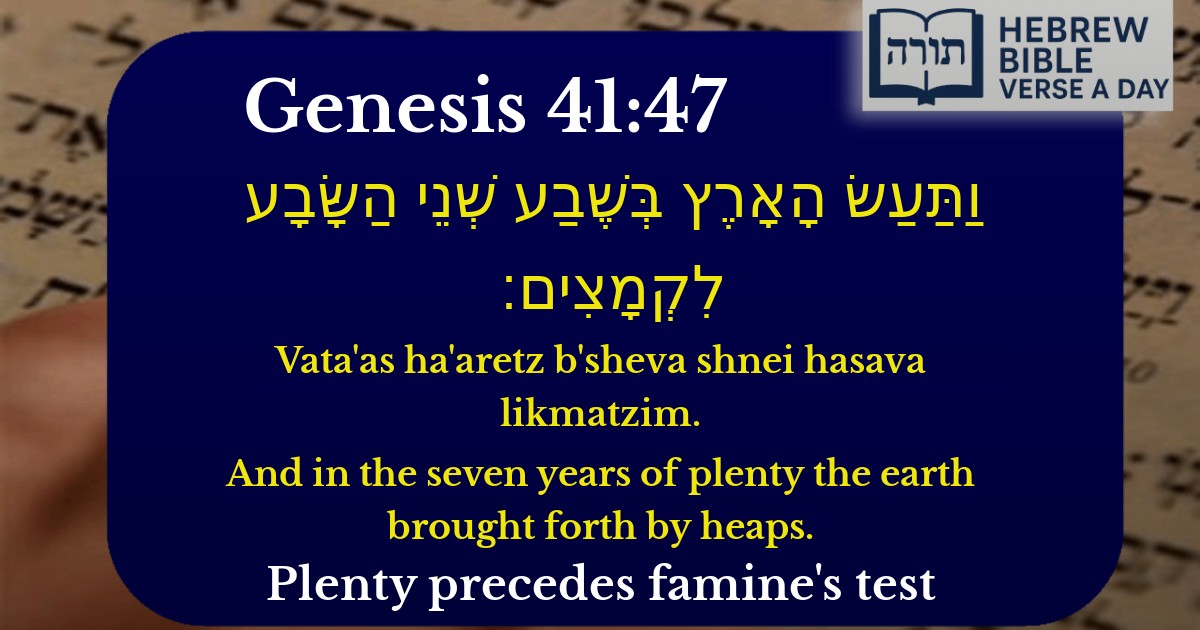Join Our Newsletter To Be Informed When New Videos Are Posted
Join the thousands of fellow Studends who rely on our videos to learn how to read the bible in Hebrew for free!
Hebrew Text
וַתַּעַשׂ הָאָרֶץ בְּשֶׁבַע שְׁנֵי הַשָּׂבָע לִקְמָצִים׃
English Translation
And in the seven years of plenty the earth brought forth by heaps.
Transliteration
Vata'as ha'aretz b'sheva shnei hasava likmatzim.
Hebrew Leining Text
וַתַּ֣עַשׂ הָאָ֔רֶץ בְּשֶׁ֖בַע שְׁנֵ֣י הַשָּׂבָ֑ע לִקְמָצִֽים׃
וַתַּ֣עַשׂ הָאָ֔רֶץ בְּשֶׁ֖בַע שְׁנֵ֣י הַשָּׂבָ֑ע לִקְמָצִֽים׃
🎵 Listen to leining
Parasha Commentary
📚 Talmud Citations
This verse is not quoted in the Talmud.


Context in the Torah
The verse (Bereshit 41:47) describes the fulfillment of Yosef's interpretation of Pharaoh's dream, where seven years of abundance in Egypt preceded seven years of famine. The phrase "וַתַּעַשׂ הָאָרֶץ בְּשֶׁבַע שְׁנֵי הַשָּׂבָע לִקְמָצִים" highlights the extraordinary productivity of the land during this period.
Rashi's Explanation
Rashi explains the term "לִקְמָצִים" (by heaps) as meaning that the earth produced grain in such abundance that it could be gathered in handfuls rather than through the usual laborious process of harvesting. This emphasizes the miraculous nature of the plenty, where minimal effort yielded maximal produce—a clear sign of divine blessing.
Midrashic Insights
Halachic and Philosophical Implications
The Rambam (Hilchot De'ot 3:1) derives from this episode the importance of preparing during times of plenty for future scarcity. Yosef's wisdom in storing grain reflects the Torah's broader principle of hishtadlut (human effort) guided by divine providence. The miraculous abundance was not an excuse for complacency but a call to responsible stewardship.
Symbolism of "Seven Years"
The Malbim notes that the seven years parallel the seven days of Creation, suggesting that just as Hashem created the world with orderly cycles, He orchestrates history with periods of abundance and challenge to test human righteousness—as seen in Yosef's rise to leadership through this trial.